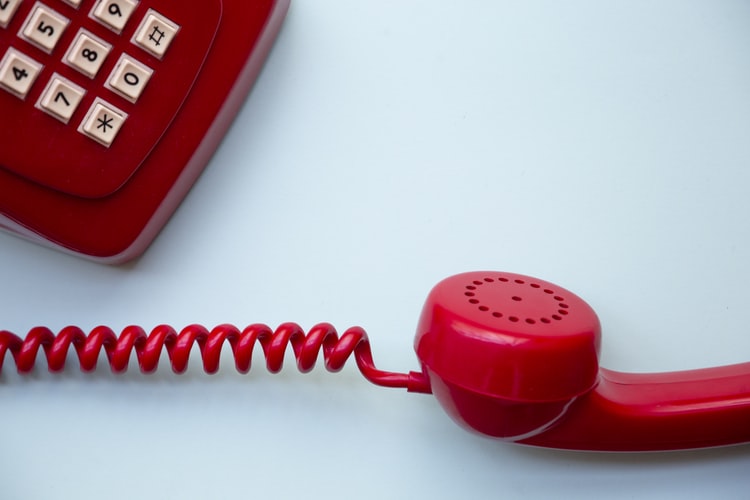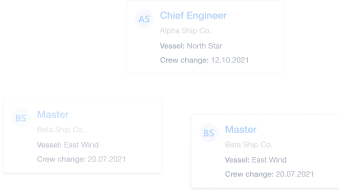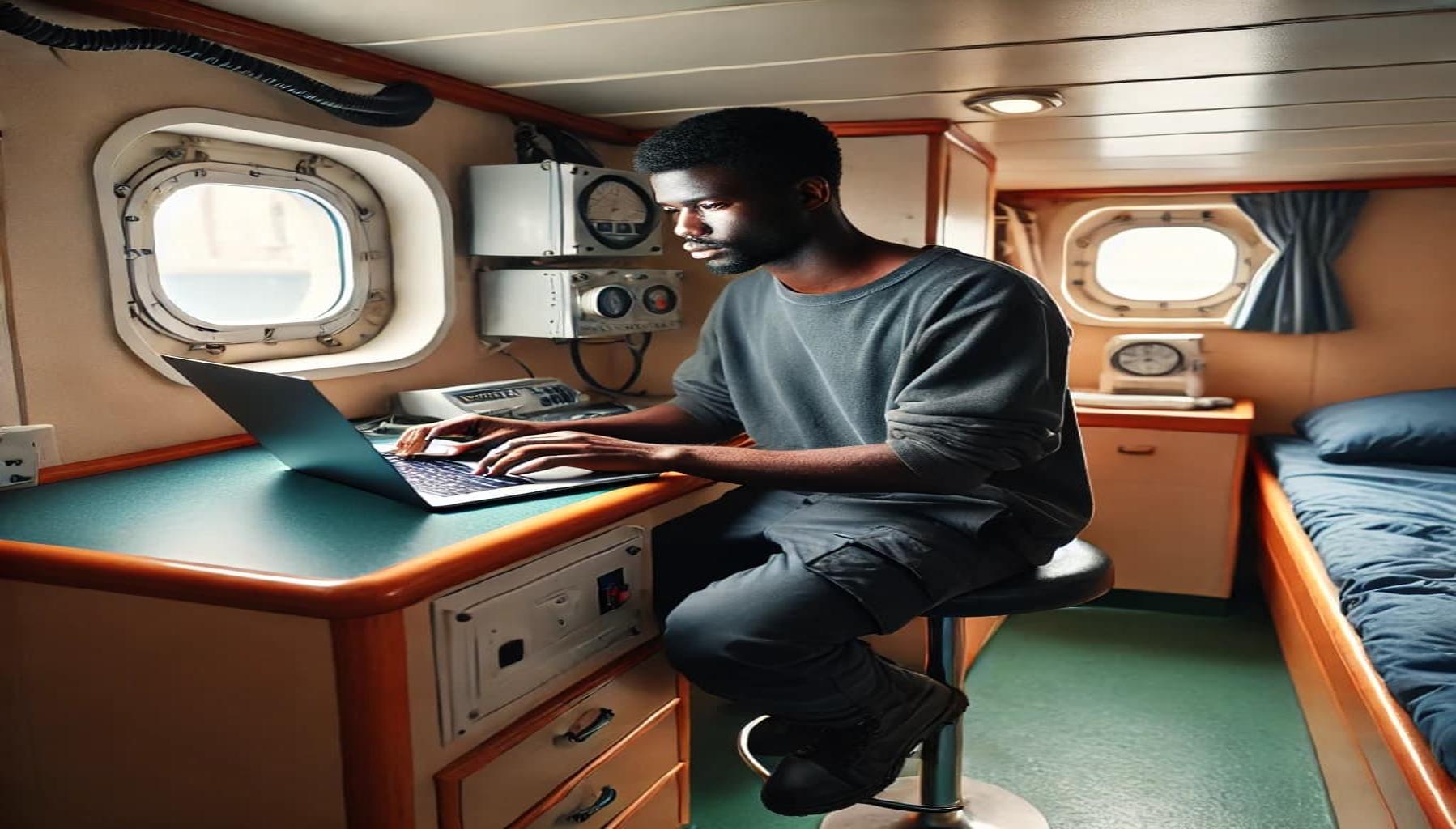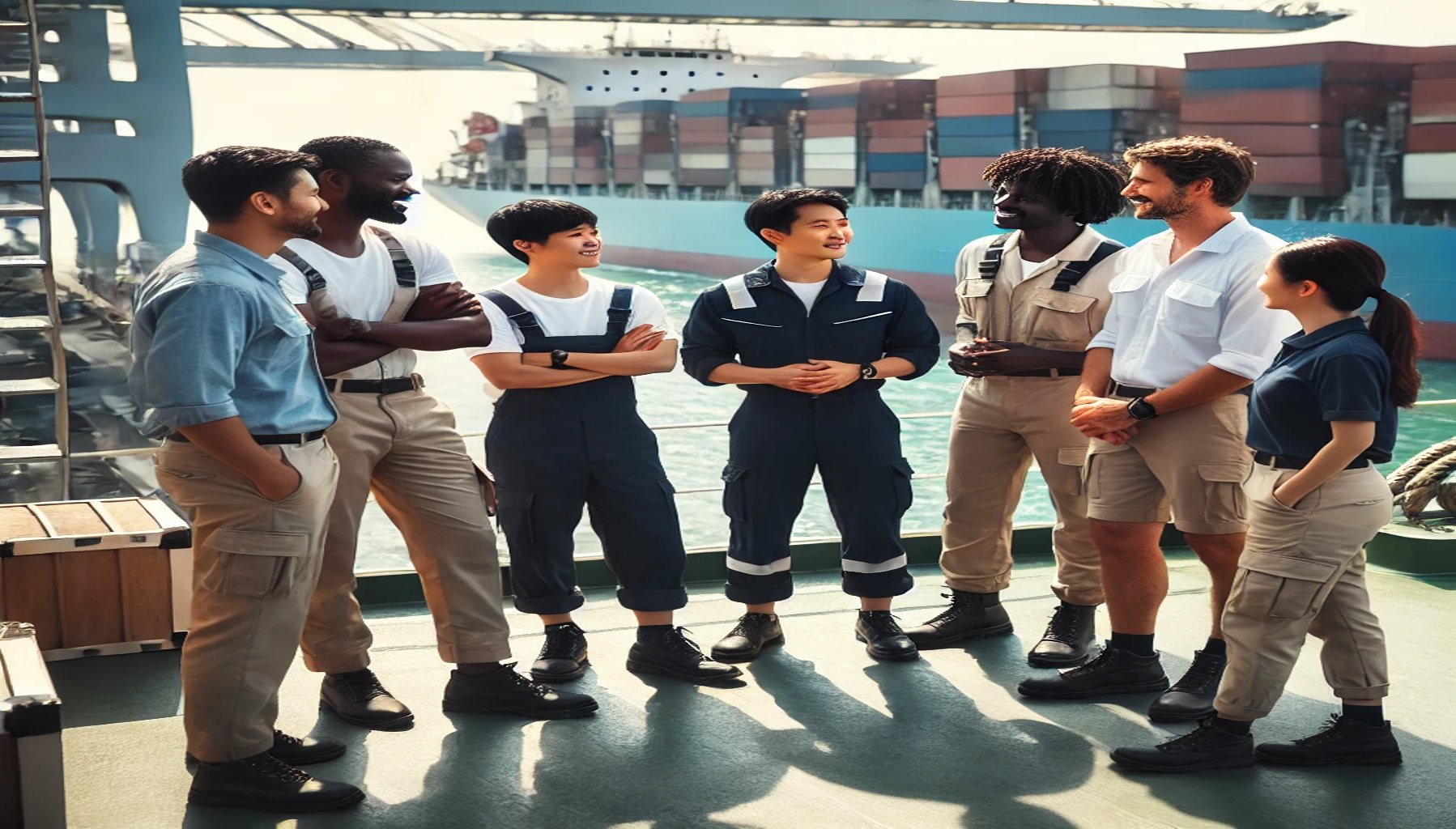If you’re in a relationship and one of you is away for months at a time working in a maritime job at sea, it can be hard on both of you, and for a variety of different reasons.
Maybe one of you has years of sea time to your name and you’re both used to the onshore / at sea life but it’s starting to take its toll on your relationship.
Or perhaps you’re starting out in your career and looking for entry level cargo ship jobs and wondering if your relationship can stand the test of time.
Read more: Jobs at Sea & How to Handle Being Apart on Valentine’s Day
But whether you’re thestay at home partneror the ocean-going half of your couple, making sure that you both feel supported when one of you is away from home for long periods of time is crucial. Of course, this can be easier said than done when one of you is not just thousands of miles away from home, but often also thousands of miles away from land!
So in this article we're taking a look at some practical and emotional ways that people who work in seafarer jobs - and their partners - can keep their relationship happy and healthy.
Of course, it’s not all doom and gloom, and the fact is, a relationship in which one partner works in a seafarer job can actually be a lot stronger due to its unique nature. After all, a relationship based on one person being away from home at long stretches of time needs to be based on commitment, trust and communication.

And just to touch upon a practical point, we know that communicating effectively (or even at all) can be dependent on the type of WiFi connection you have onboard the vessels you work on in your maritime job, but for the purposes of this post, we’ll assume that you have at least some way to keep in touch when you’re onboard.
Relationship challenges when one of you works in a job at sea
When one of you is working in a job at sea, it’s a real possibility that your relationship will face challenges every now and then. In fact, that’s not so different from any relationship - even when both partners are both working on land.
Read more:How to Cope with Working Away From Home at Sea
The trick is to strengthen your relationship by also being in a partnership.
Maybe your wife, husband, girlfriend or boyfriend also works in a seafarer job, either in a shore based maritime job or onboard a vessel. If so, there is a greater chance of them understanding the life you lead.
But what if you’ve just met a new partner and they just don’t understand how you could live your life half at sea and half on land? What if you’re starting your sea career in an entry level cargo ship job and your existing partner is worried about how they’ll cope now that you’re going to be away for long periods of time?
Between you, taking care of the practicalities of one of you being away and the other being based at home will go a long way towards creating a true partnership. We’ll get onto the romantic relationship part in a moment, but for now, here’s how to take care of the practical stuff.

Practical tips for when one of you works in a seafarer job
First of all, what’s the difference between a partnership and a relationship?
The dictionary defines a relationship as “The relationship between two people or groups is the way in which they feel and behave towards each other.” or “A relationship is a close connection between two people, especially one involving romantic feelings.”
Meanwhile it defines a partnership as “Partnership or a partnership is a relationship in which two or more people, organizations, or countries work together as partners.”
You see the difference? A relationship is more emotional. The partnership definition mentions ‘work’ and is therefore more practical. The people involved need to work together to make the situation work.
And to make a relationship like yours work, practical issues need to be taken care of and loose ends tied up before one half of your couple heads back out to board their ship.
If not resentment and stress can rear their ugly heads and cause issues - which are, of course, harder to resolve when one of you is thousands of miles away.
Read more:How to De-Stress When you Get Home From a Seafarer's Job
So let’s look at some ways that both partners - whether you’re the one working away in a maritime job at sea or you're the partner on land - can make your relationship and partnership work in this unique scenario.

5 things you should do if you or your partner work away from home
1. Plan the practicalities
Most of us would agree that finding the time to sit down and take care of life admin isn’t the most fun job in the world. But it’s an important one. Especially when one of you is working away in a seafarer's job.
You need to make the time for planning and you need to be organized.
Write down everything you can think of that needs to be taken care of. Whether they are recent issues that have just cropped up, or you’re starting out in entry level cargo ship jobs and need to deal with...well, everything.
This list can cover everything from your child or children’s school activities and work, to dealing with tax and banking to physical things that need taking care of around the home and garden.
A word of warning though, one thing to not let creep into this planning session is emotions. This all needs to be done on a purely practical level. If certain emotional issues arise, you can note these down and talk about them later.

2. Check your insurance policies
It is crucial for both of your wellbeing and peace of minds that you know that you, your home and your pets are fully covered in the event of a problem. Sitting down once a year when the partner who works away in a job at sea is at home and going through your policies is highly recommended.
Read more: Keeping the Knot Taut: Maintaining Healthy Relationships as a Sailor
Check any policies that are about to expire, particularly over the course of the next job contract and decide whether you’re going to renew them or shop around for a better deal.
You don’t want to be left uninsured for life, travel, pet or home insurance in the event that the person at sea is un-contactable and a decision needs to be made.
3. Decide upon a budget
If one of you is away working in a maritime job and the other is at home spending money with wild abandon, it’s probably going to cause problems - both emotionally in your relationship, and practically in your partnership. Agree upon your budgets and stick to them.
For this to work, you need to make sure that you both have access to the relevant bank accounts. And don’t forget to check that the person who is ashore will have access rights to an account.
There’s no point having an emergency fund for unexpected home or family expenses, only for the person who needs it to be denied access.
4. Figure out home improvements
Chances are that periodically there’ll be some repairs or home improvements that need doing. Whether it’s the urgent fixing of a roof or boiler, or redecorating one of the kids’ bedrooms.
Make a list of the things that need mending or updating around the home and garden. It’s fine to have a wish list of home upgrades that you’d love - a new fitted kitchen, decking in the back yard or garden, but try and prioritize.

Figure out what can be done by the person who stays at home, what can be taken care of by the partner who works in the seafarer job, either alone or with each other’s help, and what needs a professional or specialist to deal with it.
It might be unavoidable if it’s a big project, but try not to let jobs around the house eat into the precious time you have together on shore. (Unless you love doing DIY together, of course!) Figure out what can be done when, and by whom.
5. Know who to call in times of need
It’s a fact of life that unfortunate events, illness, or worse can and do happen. Both at sea and on shore. Yes, seafarer jobs can be hard work and occasionally dangerous, but life on land can come with its own risks too!
So that neither of you are left desperately trying to find someone to help you out in a sticky situation, write lists of people who can be called upon to help.
Read more:How to Cope with Bad News When You're Working at Sea
If you’re working in a job at sea, take with you a notebook which includes names, numbers and email addresses - in fact as many contact details as you have - for your employer, contact at the shipping company, manning agent, maritime recruitment agency etc.
You’ll also want your home contact details including family cell phone numbers, plus those of close friends or neighbors in case you can’t get hold of your spouse / partner / primary contact right away.
If you’re the person who stays at home, as well as your partner’s employment numbers and emails, you should also compile a list of contacts that includes everyone from family and friends to car mechanic, plumber, locksmith, electrician, and lawyer.

Chances are the months at sea (and at home) will pass peacefully and without incident but as the old saying goes, it’s always better to be prepared.
Take care of the practicalities to strengthen your partnership
Working in jobs at sea can be stressful for both parties in a relationship but dealing with the practicalities will help strengthen your bond and your partnership and make the situation less stressful on both of you.
7 Emotional tips and support when one of you works in a seafarer job
If you want to know how to build on your relationship, even when one of you works on a ship, try some of these helpful suggestions.
If at all possible, stay in touch and talk to your partner by one of the many instant messaging or video calling apps. If you can see each other face to face this will be even better - although the success of this will depend heavily on the stability of your WiFi connection.
Before you leave for your next maritime job at sea, download as many apps as you and your partner think you might use. That way, if one doesn’t work or is sluggish, you might be able to switch to another one. Of course, if you have children, it’s great to be able to catch up with them over video chat too!
Try Skype, Zoom or FaceTime for video calling, or WhatsApp, Line, WeChat, or Facebook Messenger for instant messages - or any other app of your choice! If you’re having trouble connecting, you could always switch to emails as these have a greater chance of being able to be sent.
1. Stay connected by daily emails
One nice thing to do is to write an email a day - just to check in with your spouse or partner.
These don’t have to be huge long essays - just a simple “Good morning! Missing you!” can brighten both partner’s day. One way of making your other half feel connected to you while you (or they) are away is to let them know how your day went.

If you’re at home, it can make you feel closer to your partner by knowing what their life on a cargo ship entails, while if you’re the one working in seafarer jobs it can be a real boost to your morale to hear news from home: how the kids are doing at school, what the rest of the family are up to, what the weather is like and so on.
Keep those lines of communication as open as you possibly can while you’re away working in jobs at sea.
2. Communicate when you are at home
To keep your relationship healthy, it is also important to make time for talking while both partners are at home. And we’re not just talking about idle chit-chat - though that’s fine of course. But to really sit down and talk about your emotions and feelings.
The partner at home may feel slightly forgotten sometimes, so if you’re the one working in maritime jobs it’s important to discuss why your job is important to you as well as how it feels for you to be away from home. Both partners should give each other the time and space to talk through any feelings.
That way, if there are any issues to overcome, you can do so more effectively as you will both be able to see each other’s position and point of view. And coming up with shared solutions will make you stronger as a couple.
Read more:9 Things To Do Before Leaving Home for a Job at Sea
3. Talk - but take time to listen too
Communication is about talking but to effectively communicate, you need to listen too. Actively listen to and understand any challenges that your partner is facing due to the unique circumstances of one of you working in jobs at sea.
And that goes for both of you. Does the partner on land struggle to run the house, look after the kids and maybe also hold down their own job? Does the person working in a seafarer's job just need to decompress for a few days when they get home from sea?

How are they coping with any physical and mental stress that comes with different types of maritime jobs?
By discussing, listening and finding resolutions to any problems together, you will create a solid basis for your relationship to continue to thrive.
4. Be independent within your relationship
Of course your partner or spouse is probably the most important person in your life and the one you depend on for support of an emotional nature, but it is important to have hobbies and friends outside of the relationship too.
The person at home will especially need this support network of friends and activities but anyone working in a maritime job will also have much to gain from having a life away from the ocean and friends to catch up with on land.
5. Take time to nurture your relationship
When you’re physically reunited with each other, especially after a period of four or six months, it can be tempting to try and cover all the things that have been happening right away. Instead, be kind to your relationship and give yourselves time to settle back into your routine.
There’s no need to launch straight into topics such as home improvements, getting the car serviced, mowing the lawn or painting the kitchen. The nature of jobs at sea means that you’ll likely have plenty of time to cover all of the necessary DIY and life admin!
6. Leave emotional subjects for when you meet
On a similar subject, try not to get into unnecessarily emotional or serious subjects by phone, email or instant messenger. The likelihood is that a phone connection won’t be good enough for serious conversations, and it is all too easy to misunderstand the meaning behind written words in emails, and especially texts.

Of course if something really important comes up, you will need to discuss this as best as you can, but try to stay away from overly emotional topics.
7. But also take time to enjoy yourselves
Just as DIY and car mechanics can wait when you’re reunited, make sure you take time out for the two of you. Of course the partner who has been away at sea will want to spend time with your children if you have them, see other members of the family, and friends but make sure that you give your relationship priority.
Relax and enjoy being together again. Whether you go out for dinner or just for a nice long walk, this is your time to catch up, hang out and spend some quality ‘you two time’.
If at all possible, take some time off work and duties together. It can be tempting to view jobs at sea as the seafaring partner being ‘on’ when on a vessel and ‘off’ when at home.
However the danger with this is that the home-based person is never ’off’. That can lead to them feeling always switched on to chores and the ins and outs of domestic life and therefore overwhelmed and even resentful if their partner is chilling and enjoying their downtime.
If you can, could a grandparent, aunt or uncle look after the children while you take a couple of days away, or even a vacation together?

How seafarer jobs can strengthen your relationship
One of the most important things is to respect each other’s roles and contributions to the relationship and family life, both emotionally and physically, as well as financially. A commitment to continual communication is crucial to create a strong partnership that is based on mutual trust and respect.
These things are vital when one person in a couple works away from home in a job at sea, and if both parties are committed to working to maintain a healthy and flourishing relationship, as a result a stronger and more meaningful partnership can evolve.
Martide helps you find maritime jobs at sea
Martide helps you line up jobs at sea quickly and easily either through our website or our mobile app for seafarers. The app also helps you stay in touch with employers and manning agents - even when you’re on the go.
That means if you’re the ocean going partner in your relationship, you’ll be able to find your next seafarer job with a minimum of fuss, no matter where in the world you are.
Line up a maritime job, and you’ll know when your next embarkation date is so you can have ample time to deal with anything that needs taking care of at home.
Plus the streamlined process means that you won’t be wasting your valuable shore time with your loved ones.

Download our free mobile app from the Apple App Store or Google Play today.
This article was originally published on May 15th 2020 and updated on November 26th 2024

Eve Church
Eve is Martide's content writer, publishing regular posts on everything from our maritime recruitment and crew planning software to life at sea. Eve has been writing professionally for more than two decades, crafting everything from SEO-focused blog posts and website landing pages to magazine articles and corporate whitepapers.
UK




